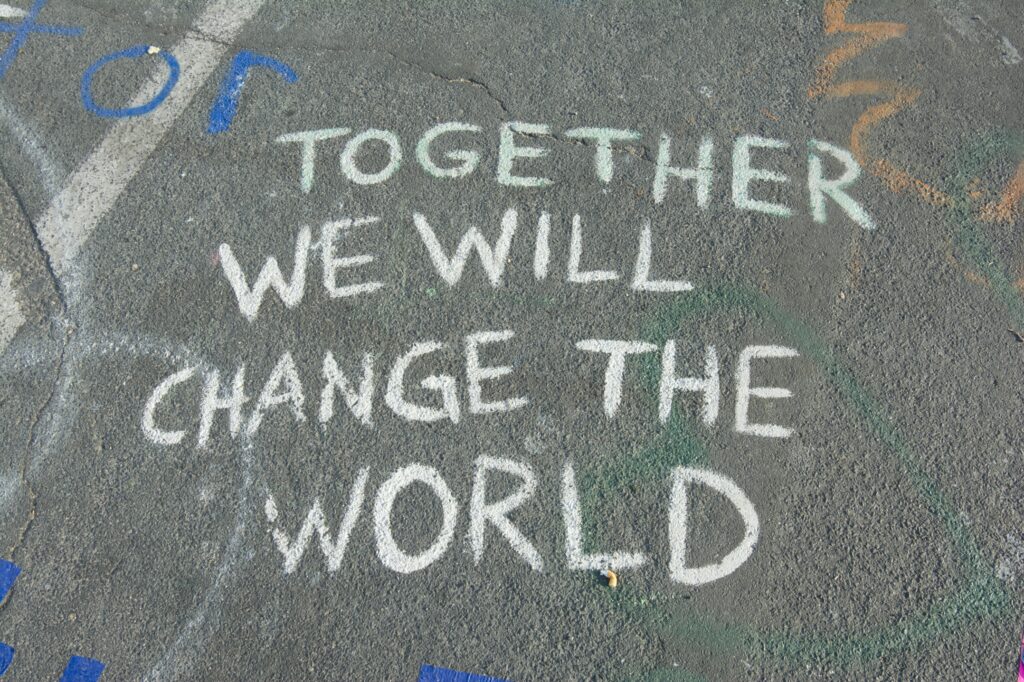Today I will focus on a fundamental aspect of human behavior that involves giving without expecting anything in return – and it’s generosity. It includes simple acts of kindness, compassion, and altruism towards others. In today’s world which is often marked by hustle culture and self-promotion, I can see a quiet revolution happening – one that celebrates generosity as the new trend. It’s no longer just about showcasing material possessions or personal achievements; instead, it’s about the impact we can make through acts of kindness and giving back to others. Yes… call me naive but I do know a lot of people who are ready to commit and give back to their communities and are truly generous and kind-hearted. First things first – let’s check what you think about being generous.
I’ve created a short and easy questionnaire to help you reflect on your own level of generosity and explore ways to cultivate a more giving mindset which I do encourage on this blog. So let’s dive in!
Instructions for you: For each question, select the response that best reflects your thoughts, feelings, and behaviors. Be honest with yourself and remember that there are no right or wrong answers!
- How often do you volunteer your time to help others?
- a) Rarely or never
- b) Occasionally
- c) Regularly
- d) Frequently
Solution: If you answered (a) or (b), please consider finding opportunities to volunteer in your community or support causes that resonate with you. Even small acts of service can make a significant difference in the lives of others.If your answered (c) or (d) – I’m so proud of you for being a true king or queen of kindness and a rare gift to your loved ones or your communities.
- How willing are you to share your resources with those in need?
- a) I prefer to keep my resources to myself
- b) I occasionally share resources when asked
- c) I am willing to share resources when I see a genuine need
- d) I actively seek out opportunities to share my resources with others
Solution: If you answered (a) or (b), reflect on the plenty of things you have and consider how sharing your resources can positively impact others. Start by donating to charity, offering assistance to someone in need, or participating in community initiatives. Of course answers (c) or (d) – well done you! You know what they say: sharing is caring! So great to hear that you care so much!
- How do you respond to requests for help from friends or family?
- a) I often make excuses or avoid helping
- b) I help if it’s convenient for me
- c) I try to help when I can, but it depends on the situation
- d) I willingly offer my help and support whenever needed
Solution: If you answered (a) or (b), challenge yourself to prioritize the needs of others and offer assistance whenever possible – helping the people you love is beyond precious and also showing your true feelings towards them. Please practice empathy and compassion towards those who reach out to you for help, even if it requires some inconvenience on your part. If you answered (c) or (d) – you’re a rare gem and you need to be framed! lucky those who are around you!
- How do you react when you witness someone in need or distress?
- a) I ignore it and mind my own business
- b) I feel sympathetic but don’t take action
- c) I offer assistance if I can, but sometimes I hesitate
- d) I immediately try to help in any way I can
Solution: If you answered (a) or (b), think about different ways of cultivating a mindset of empathy and proactiveness towards helping others. Why not take the initiative to offer support or assistance when you encounter someone in need, whether it’s through a kind word, a helping hand, or connecting them with resources? If you answered (c) or (d) well.. there is always a chance of improvement and it’s truly okay to hesitate at times… but if you try to help immediately? you’re the reason for many people to smile!
- How do you feel after performing acts of generosity?
- a) Indifferent or unaffected
- b) Slightly good about myself
- c) Satisfied and fulfilled
- d) Joyful and deeply fulfilled
Solution: If you answered (a) or (b), it’s time to reflect on the emotional rewards of generosity and how they contribute to your overall well-being. Notice the positive feelings that arise when you engage in acts of kindness, and let them inspire you to continue giving from the heart. And if your answer was (c) or (d) – I’m happy to hear that! For me generosity is also a type of therapy as it makes me feel needed and I enjoy my life more – hopefully sharing gives you the same positive emotions!
So what do you think? Are you generous? Hopefully you did enjoy the possibility for a tiny self-reflection in the department of giving!

Generosity isn’t a new concept, but its revival in popularity is worth mentioning here. From social media influencers to everyday individuals, more and more people are embracing the ethos of generosity and incorporating it into their lives. But why the sudden shift? Let’s talk about it a bit here.
I believe that in today’s world social media platforms have become powerful tools for shaping trends and influencing behavior, wouldn’t you agree?. While they’ve often been criticized for promoting unrealistic standards and fostering envy, they also have the potential to spread positivity (thankfully!). Nowadays, it’s not uncommon to see posts highlighting acts of generosity, whether it’s donating to charity, volunteering, or simply helping someone in need. As these acts gain visibility, they inspire others to follow suit, creating a ripple effect of kindness – and I applaud this side of the social networking sites! Let’s unite and help!
I’ve also explored some research that has shown that practicing generosity can have profound benefits for mental health and overall well-being – and on this blog we’re all about well-being, aren’t we? That’s exactly what we promote and encourage!. So acts of kindness release feel-good hormones like oxytocin and serotonin, which can boost mood and reduce stress. Moreover, helping others fosters a sense of connection and purpose, which are essential components of psychological health. In a time when mental health issues are on the rise, prioritizing generosity is a powerful way to nurture both individual and collective well-being. Isn’t that just amazing?
And last but not least I’ve been also promoting community work and guess what? Yes you got it! Communities are actually strengthened by acts of generosity. Whether it’s neighbors helping each other during times of crisis or strangers coming together to support a common cause, generosity fosters a sense of unity and solidarity. By investing in the well-being of others, we contribute to the creation of more resilient and compassionate communities where everyone has the opportunity to thrive.I’ve told you in some of my posts about numerous ways on how, when and why to help the people around you! So let’s be generous!
Bear in mind that philanthropy is a quality that can actually be nurtured and cultivated through self-awareness, intentionality, and practice. By reflecting on your responses to these questions and implementing the suggested solutions, you can gradually develop a more generous mindset and make a positive impact on the world around you. Remember, even small acts of kindness can create ripple effects of goodness and compassion.
Also make sure you follow us on Instagram and Facebook for new updates and posts!!!





